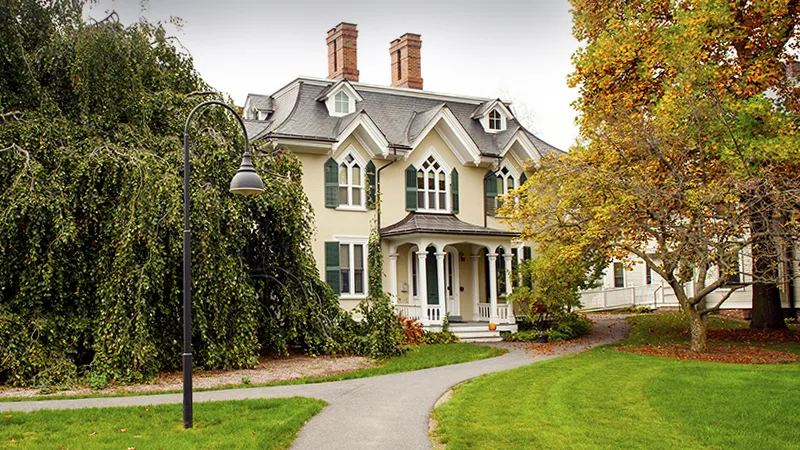Hopkins residents boast that their house has an ideal location, overlooking the Lyman Conservatory and its gardens and providing a beautiful view of the Mount Holyoke range of mountains.
In 1920, then-college president William Allan Neilson eagerly bought the three buildings that are known as the Hopkins Houses. With these secured, he could carry out his plan to make every student a campus resident of Smith College. Before this, the college had a shortage of housing facilities, and students had to find living arrangements on their own.
Today only one of the original houses remains. Hopkins, one of Smith's significant historical buildings, was built as a private residence in 1861.
Food Cooperative
Hopkins is one of two small cooperative houses. The 18 student residents buy food collectively and cook communally for the majority of house meals, which receive rave reviews from "Hopkids" and the many friends, family members and professors who frequently join in house dinners and potlucks. All residents share in cleaning and maintaining the house, and they govern the house collectively through a weekly house meeting. The house elects a food coordinator and treasurer to manage food purchasing and communal funds and also has a house coordinator who fulfills traditional residential life duties in the house. Hopkins residents participate in a close-knit house community, applying ideals of sustainability and social justice to their daily lives. The house cultivates relationships with local farms, timebanks, cooperatives and workshares, and all residents participate actively in making decisions about running the house and defining the house community's character and goals. Hopkins is open to all students except first-years and strives to maintain a balance of sophomores, juniors and seniors.

